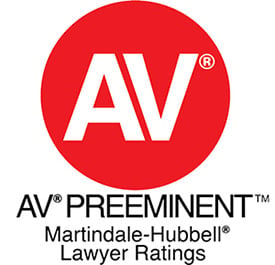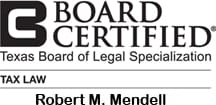Tax Frequently Asked Questions
What are dividends and how are they taxed?
A dividend is a distribution of cash or property paid by a corporation to a shareholder out of the corporation’s current or accumulated earnings and profits. Dividends are included in the shareholder’s gross income as ordinary income. A shareholder only has tax liability related to a dividend if there is a distribution of property by a corporation to its shareholders out of its earnings and profits. A mere declaration by the corporation that it has authorized a distribution is not sufficient to trigger a shareholder’s tax liability. Dividends are included in gross income of a shareholder when they are actually or constructively received.
Dividends are generally taxed as ordinary income. However, qualified dividends are taxed at lower rates. For tax years after 2007, the maximum tax rate on qualified dividends and net capital gain is 0% (reduced from 5%). There is still a 15% maximum tax rate on qualified dividends and net capital gain.
What is the basis of property acquired by gift?
The term “basis” generally refers to a taxpayer’s capital stake in property, which is used when determining the gain or loss on the sale or exchange of property. Basis is also used to determine the amount of depreciation allowances. Basis is generally the cost of or amount paid for the property.
Under section 1015(a) of the Internal Revenue Code (IRC), the recipient of a gift (donee) generally has the same basis in the gift as the basis of the gift giver (donor) or last preceding owner by whom it was not acquired by gift. If this basis, however, after being adjusted for the period before the date of the gift, is more than the fair market value of the gift at the time the property was given away, then the basis for determining loss is the fair market value of the property.
For gifts acquired after September 2, 1958, the basis is the basis under section 1015(a) plus the amount of gift tax paid. This new basis cannot be more than the fair market value at the time of the gift. Under section 1015(d)(6), there is a limit on the amount of gift tax paid for gifts made after December 31, 1976. It limits the increase in basis to the portion of the gift tax paid on the property that is because of the gift’s net increase in value.
What is the generation-skipping transfer tax?
Chapter 13 of the Internal Revenue Code contains provisions relating to the generation-skipping transfer tax (GST). The rules and regulations relating to the GST are extremely complex. The GST may be imposed on transfers of property to people who are at least two generations below the transferor’s generation (for example, a grandparent to a grandchild). Gifts or direct skips to skip persons made on an individual’s death may be subject to the GST. A direct skip is a transfer made during an individual’s life or on his or her death of an interest in property that is subject to the estate or gift tax and made to a skip person. A skip person is a person of a generation that is two or more generations below the transferor.
Is an early distribution from a retirement plan taxed?
There is an additional 10% tax (in addition to income tax) on certain early distributions of retirement plans. The 10% tax is reported on the Form 1040. Early distributions are distributions that an individual receives from a qualified retirement plan or deferred annuity contract before reaching 59 1/2 years old. A qualified retirement plan is:
- A qualified employee plan such as a 401(k) plan
- A qualified employee annuity plan under section 403(a)
- A tax–sheltered annuity plan under section 403(b) for employees of tax–exempt organizations or public schools
- IRAs (other than an education IRA)
If an individual takes an early distribution (within the first two years of participation) from a SIMPLE IRA plan, the additional tax is 25%. There are exceptions to the 10% penalty:
- Distributions to a beneficiary or estate on or after a taxpayer’s death
- Distributions made because of a total and permanent disability
- Distributions made as part of a series of substantially equal periodic payments over the life expectancy of the owner or life expectancies of the owner and the beneficiary
- Distributions that are equal to or less than deductible medical expenses (expenses that exceed 7.5% of adjusted gross income)
- Distributions made because of an IRS levy of the plan
- Distributions to qualified reservists
In addition, nontaxable distributions such as distributions that are rolled over to another qualified plan or a distribution of designated Roth contributions are not subject to the additional 10% tax.
How is the gain or loss on the sale or transfer of a capital asset determined?
A sale or exchange of a capital asset produces a capital gain or loss. Capital asset is not specifically defined by the Internal Revenue Code. Rather, section 1221 sets forth classes of property that do not qualify as capital assets. Under section 1221, capital assets include all property that is held by a taxpayer, whether or not the property is connected with the taxpayer’s trade or business, except for:
- Stock in trade, inventory or property held primarily for sale to customers in the ordinary course of business
- Depreciable property used in a trade or business or real property used in the taxpayer’s trade or business
- A copyright; literary, musical, or artistic composition; letter or memorandum; or similar property (if it meets certain listed requirements)
- Business accounts or notes receivable in the ordinary course of business
- Certain publications of the US government
- Commodities derivative financial instruments held by a commodities derivatives dealer (with certain listed requirements)
- Hedging transactions that are so identified by the close of the day it was acquired, originated or entered into
- Supplies of a type regularly used or consumed by the taxpayer in the ordinary course of trade or business
To determine the gain or loss on a sale or exchange of a capital asset, take the amount realized minus the cost or basis of the property. The amount realized is the amount of cash, property or other assets received in exchange for the item transferred. Generally, the amount realized on the sale of a capital asset is cash, but a taxpayer may receive property in exchange. If the taxpayer receives property, the amount realizes is the fair market value of the property. There are special rules applicable to wash sales, related-party transactions, small business stock and section 1256 straddles, which may affect the amount of gain or loss recognized.
What are the tax consequences of the sale of a principle residence?
Generally, a gain on the sale of a principal residence is subject to tax. This tax is calculated by determining the amount realized on the sale (contract price minus selling costs) minus the cost of acquiring the home plus capital improvements to the home. If the home was held for more than one year, the gain is taxed as a long-term capital gain.
There is an exemption from tax for taxpayers who have owned and lived in the home as their primary residence for two of the last five years before the sale. Single taxpayers can exclude up to $250,000 of the gain. Married taxpayers filing a joint return can exclude up to $500,000. This exclusion can be used once every two years. If a taxpayer sells his or her house for a gain and also qualifies for the exclusion, there is no reporting requirement. If a taxpayer sells his or her house for a gain and does not qualify for the exclusion, the taxpayer reports the gain as capital gain on Schedule D of Form 1040. If a taxpayer sells his or her house for a gain and the gain exceeds the exclusion amount, the taxpayer must report the excess gain on Schedule D. A taxpayer cannot deduct a loss on the sale of his or her principle residence.
What are the rules for deducting home office expenses?
Taxpayers who work from home for either themselves or an employer may be permitted to deduct expenses related to the business use of the home if certain requirements are met. This is referred to as the home office deduction.
Under section 280A of the Internal Revenue Code (IRC), an individual is permitted to deduct expenses related to the business use of his or her home if that part of the home is used exclusively and regularly as a principle place of business for any trade or business; as a place of business that the individual uses in the normal course of his or her trade or business to meet with clients, customers or patients; or if a separate structure on the property is used, it is used in connection with the taxpayer’s trade or business.
Regular use requires that the taxpayer use the home office on a regular basis (for example, meeting with clients on a daily basis) rather than only occasionally. Exclusively means that the taxpayer cannot use the office for any other purpose besides business purposes. There is an exception to the exclusive use requirement for areas of a home used to store inventory or for a day care facility.
Do I have to pay US income tax on money I earned in a foreign country?
US citizens and residents are taxed on their worldwide income. Even if a US citizen lives outside of the United States, he or she must pay US income tax. US citizens and resident aliens who receive money from foreign sources must report all foreign source income on their US tax returns unless it is exempt. This information must be reported on a US tax return regardless of whether the individual receives a Form W-2, Form 1099 or their foreign equivalents.
Foreign source income includes both earned and unearned income such as wages, tips, interest, dividends, capital gains, pensions, rents and royalties. Individuals living outside of the United States may be entitled to an exclusion of up to $85,700 (for the 2007 tax year) of foreign earned income if certain criteria are met. This exclusion does not apply to payments that the US government makes to civilian or military employees who live outside of the United States.
What are the reporting requirements for businesses with respect to independent contractors?
Business owners are required to file Form 1099-MISC, Miscellaneous Income, to report payments made to independent contractors of $600 or more during the year for services that the independent contractors performed. This includes any fees, commissions, prizes or awards given to nonemployees. Form 1099-MISC must be filed with the Internal Revenue Service by February 28 of the year following the year in which the payments were made. Because of this filing requirement, it is important for a business owner to request the independent contractor’s full name or business name, address and Social Security or taxpayer identification number when hiring the contractor.
The Internal Revenue Service will generally cross-reference amounts that a business owner reports as payments to an independent contractor on Form 1099-MISC with the amount of income reported in independent contractor’s tax return to ensure that they match. The contractor must report amounts earned as an independent contractor as taxable income, which is subject to the self-employment tax.
Are any taxpayers exempt from paying property taxes?
While the rules relating to property and real estate taxes may vary from one state to the next, generally speaking, churches and other religious institutions are exempt from the payment of real estate taxes. Some states also extend this exemption to public property, charitable organizations, cemeteries, hospitals, nonprofit colleges and universities and museums. In some jurisdictions, there are laws that give limited property tax exemptions to widows, veterans and disabled taxpayers. In addition, some states may allow individuals to pay reduced property taxes, based on their income.
Learn More: Taxation
Tax is a complex area of the law that involves a variety of distinct elements. Taxation involves various levels of government involvement and regulation, from the federal government down to state and local governments. Government entities impose taxes in order to raise the revenue required to pay for government projects and programs. In addition, with the globalization of the economy, tax practitioners must consider potential taxation by foreign governments when advising individual and business clients.
The federal government and some states tax the transfer of wealth through estate and gift taxes. An estate tax, also known as a death tax, is imposed on the transfer of property from a deceased person to his or her heirs.
Excise taxes can be imposed by federal, state or local authorities. The federal government alone imposes excise tax on over twenty different types of manufacturing, retail and miscellaneous transactions. Excise taxes cover a wide range of products and activities including diesel fuel, heavy trucks and trailers, sport fishing equipment, bows and arrows and firearms. An excise tax is imposed on manufacturers and producers of tires, gasoline, aviation fuel, coal and certain vaccines.
A taxpayer must pay income tax on his or her taxable income. A complex set of rules is applied to determine taxable income. Generally, taxable income is determined by calculating total income minus certain allowable adjustments, deductions and exemptions. Once taxable income is determined, progressive tax rates are applied to calculate the amount of tax due.
International tax rules are complex and may affect US citizens and residents that conduct business outside the United States and foreign citizens and nonresident aliens that conduct business within the United States. The United States has entered into tax treaties with a number of foreign countries. While the rules vary depending on the country and the type of income at issue, generally under these treaties, residents of foreign countries are taxed at reduced rates or are even exempt from US income tax on income from sources within the United States.
Property (ad valorem) taxes are taxes imposed on the owners of certain types of property. The tax is typically based on the value of that property. Most state and local governments impose an annual property tax on real estate based on the value of the subject property.
Sales and use taxes are generally imposed by state and local taxing authorities. A sales tax is collected at the time of sale to a consumer and is based on the cost of the item sold. A use tax is generally a substitute for a sales tax. If an item was not taxed at the time of sale, its use will be taxed when the item is used within the taxing jurisdiction.
Copyright © 2011 FindLaw, a Thomson Reuters business
DISCLAIMER: This site and any information contained herein are intended for informational purposes only and should not be construed as legal advice. Seek competent counsel for advice on any legal matter.



